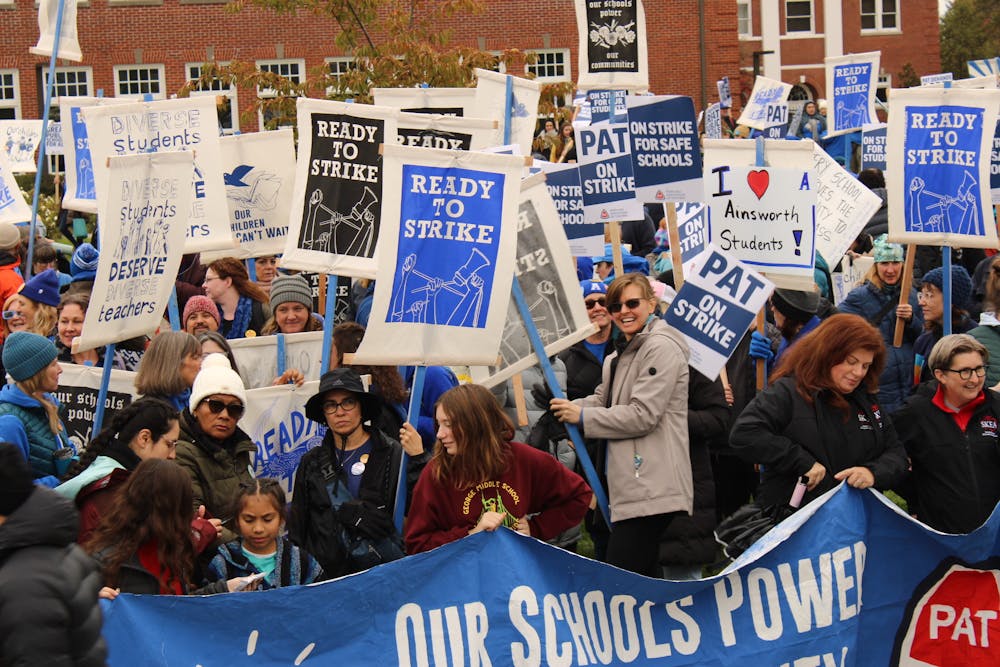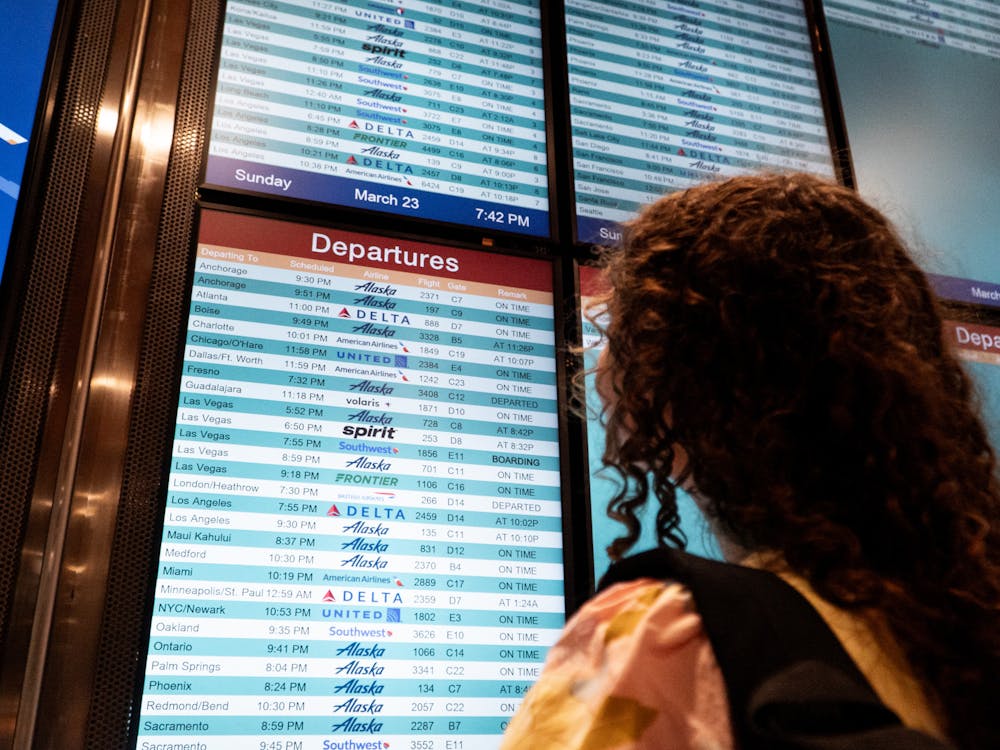Portland Public Schools (PPS) are now entering week four of the teacher strike. 81 schools have been closed down and over 40,000 Portland students have been out of school since Nov. 1, according to Oregon Public Broadcasting.
A number of those students include the children of UP professors.
With the added task of having to take care of their children all day, professors are facing the challenge of staying prepared for their classes.
“Each minute you're in class, there's a lot of prep that goes into that,” Jeffery Meiser, a political science professor with an 11-year-old son in fifth grade, said.
Outside of class sessions, professors utilize their time to prepare lesson plans, grade papers and exams, hold office hours for their students and much more. Caring for their children all day limits the work professors can get done, leaving them in a difficult position.
“I am behind,” Jessica Logue, a philosophy professor with two daughters in PPS, said. “I have had to shift office hours and I've had to take on meetings with students on zoom at odd times or those kinds of things.”
With four classes to teach every Monday, Wednesday and Friday, Logue expresses the difficulty balancing her job and caring for her daughters all day, especially now that the semester at UP is coming to a close.
“This is not an ideal time for this because I am working pretty hard to keep everybody chugging along to the finish line, and the finish line is not here,” Logue said.
For some professors, having their children at home means they’ve needed to make changes in their classrooms.
Laura Dyer, a biology professor, has a five-year-old son in kindergarten. Without being able to send him to school or keep him at home with his father, who is a disabled veteran, Dyer has been bringing her son along with her to the classroom.
“So you just say, ‘Okay, what can I do with him present?’ The lab that I brought him to yesterday, I said, ‘Okay, we are looking at models. We're not dissecting anything. We're not doing anything that would be dangerous,’” Dyer said.

Predominantly teaching anatomy and physiology, Dyer acknowledges that these changes are not ideal for both her as a professor and for her students, who expect to have hands-on experiences during their lab times.
“The students have been very, very patient and I appreciate that. And hopefully, by being transparent on my end with what my limitations are, they're not surprised by it,” Dyer said.
There was unanimous support for PPS teachers amongst the professors The Beacon spoke to.
“I want them to be able to work in buildings that are free from rodent excrement and free from mold and like I want them to have a safe environment to work in,” Logue said. “I want them fairly compensated.”
Dyer has personal history with public schools as her mother was a teacher at a public high school. As a concerned parent, she has been actively listening to the Portland Association of Teachers (PAT) and attends meetings hosted by the Portland Public Schools Board. After a meeting with the school board — where they couldn’t answer if it is okay for children to be learning in schools that are either extremely hot or extremely cold — Dyer acknowledges where her support stands.
“I'm incredibly pro-union,” Dyer said. “I know teachers do this because they want to teach.”
As parents, the professors are anxiously waiting for the reopening of schools. As fellow educators, they acknowledge that the demands PAT is calling for are necessary for the teachers to be able to do their jobs.
“It's a mess,” Logue said. “And as an educator, I'm really looking at the administration and hoping that they do more to come to an agreement because what the teachers are asking for is not unreasonable.”
Tiffany Marquez Escobar is a reporter for The Beacon. She can be reached at marqueze25@up.edu.









